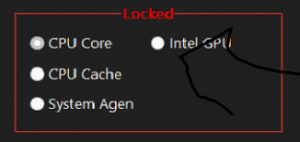
It is not always that unlocking or flashing your BIOS will be a success. Password persistence,
failed reset, and drive-level security conflicts are common problems faced by the user- particularly on enterprise laptops.
This section will cover the most common questions and trouble shooting solutions references made on real life experiences, community recommendations and manufacture guidelines.
Why did my CMOS Reset Fail?
A very frequent problem is a CMOS reset that does not remove the BIOS password. Although on many systems clearing
default settings can be accomplished by removing the CMOS battery or by jumping certain pins, on more recent laptops and business
desktops, password credentials may be stored in a separate EEPROM chip, or may be locked by NVRAM locks which remain even after CMOS clearance.
Workaround: In this situation, an EEPROM flasher at the hardware level or a manufacturer override code can be necessary.
In the case of Dell, Lenovo, and HP, resetting is frequently an unlock challenge code, which is then decrypted with such tools as bios-pw.org or vendor-specific service software.
What Of It The Password Still Remains?
In the event you keep getting a password prompt even after resets and code attempts:
- Watch out again Supervisor vs. User Password conflict. It is possible that you are resetting user accesses but not admin layer.
- Attempt to access BIOS upon 3 or more unsuccessful logins to get the master challenge code.
- Decoding: Use websites like the ones on biosbug.com or on applicable Reddit threads.
In the case of Dell laptops, there are successful posts on Reddit of attempting Dell Serial-to-Master release code methods,
wherein alphanumerical service tags are decoded into BIOS override keys. Threads on Reddit keep a record of working patterns of Dell Latitude and Precision.
fIs Wrong With My Storage Device Still Being Locked?
Another typical case is what happens after BIOS unlocking or clearing the password: the system starts up, and SSD or HDD is
still locked. The reason is that some BIOS-level passwords (most notably on Dell, Lenovo and Toshiba systems) can be used not only on system firmware, but also on self-encrypting drives (SEDs).
Source: There are several such reports on Superuser.com of locked drives that prompt HDD-specific passwords, even following a reset of the BIOS.
Solution:
- Enter BIOS and look according to Security > Drive Lock, whether the HDD passwords are set.
- In the case of a locked HDD, special forensic hardware/software or assistance of the manufacturer might be required to unlock or format the drive in a secure manner.
